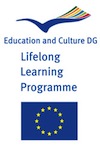Lifelong Learning Strategy
The Lifelong Learning perspective and the Lisbon strategy constitute the two pillars of European educational strategy. The Feira European Council in June 2000 asked the Commission and the Member States "to identify coherent strategies and practical measures to promote lifelong learning and make it accessible to all". This led to the publication, in October 2000 of the "Memorandum" (Commission Staff Working Document, "A Memorandum on lifelong learning", on 30 October 2000), followed by a wide consultation process at European level. This led to the publication in November 2001 of a Communication from the Commission, "Making a European Area for Lifelong Learning a reality", and to a Council Resolution on 27 June 2002 supporting this initiative and its implementation (Official Journal of the European Communities, 9.7.2002) with a view to achieving a European area for lifelong learning.
Since that time, all documents and papers from the Commission refer to this strategy which has been added to by additional initiatives aiming to foster its implementation. Simultaneously, documents published by member states representatives and stakeholders mirror this growing preoccupation on the part of various actors involved in concrete actions and activities.
The approach developed by the Commission in the response to the Consultation identified three main dimensions in the lifelong learning perspective:
- it called for "a broad definition of lifelong learning that is not limited to a purely economic outlook or just to learning for adults"
- "in addition... lifelong learning should encompass the whole spectrum of formal, non-formal and informal learning"
- the objectives of learning include "active citizenship, personal fulfilment and social inclusion as well as employment-related aspects"
It insisted on the need to provide lifelong learning opportunities for all and encouraged Member States to make effort on acquiring and updating basic skills.
Progressively this notion of lifelong learning has been enhanced by the notion of lifewide learning including not only throughout an individual's life time but also taking into account dimensions across the width of the individual's life, at work, in family, in voluntary activities, in civic life and so on.


.png)
